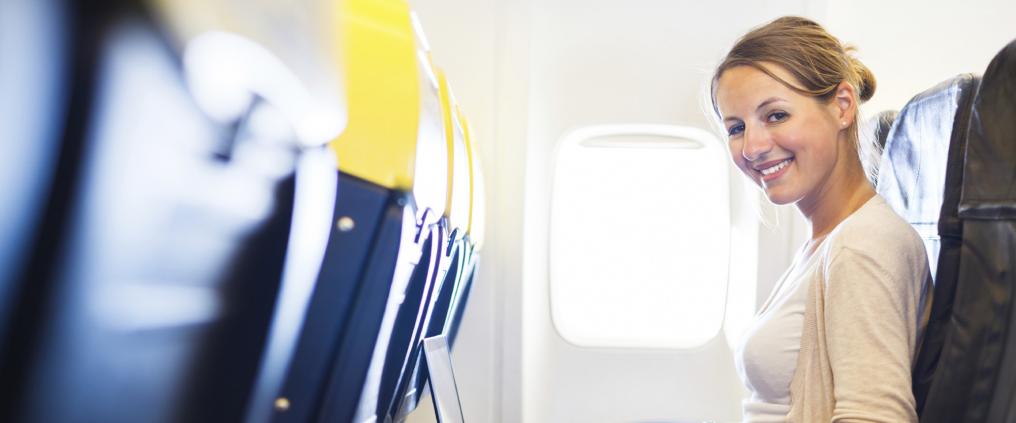The trick is to stay on the move. During long flights, blood circulation in the legs is restricted, and the limbs swell easily. Certain groups may even face the risk of a blood clot – if this concerns you, do discuss it with your physician.
For long flights, wear ‘flight socks’. These provide slight compression, helping send the blood back to the deep veins slightly more quickly, which can prevent the forming of clots.
Exercising is another good idea. The cards in the seat pockets often include instructions for in‑flight exercises, but there are simple exercises that don’t require diagrams, such as pumping your calves – just move your heels rhythmically up and down to get the blood circulating well again.
Because the air in the cabin is dry, hydration is crucial. As a rule of thumb, drink one glass of water every two hours during the flight. Beer won’t do the job; in fact, alcohol dehydrates the body.
Because of the dryness of the air, a moisturising lotion or spray might come in handy. I also recommend wearing glasses instead of contact lenses.
Removing your shoes is a good idea – although you may risk them not fitting back on again after a long flight. To ensure comfort during the trip, wear comfortable clothes and bring a flight pillow. For shutting out the noise and bustle of the cabin, sleep shades and earplugs can be useful.
Relieving jet lag
Jet lag can be alleviated with a few simple tricks. If travelling westward, start changing your day‑to‑day rhythm to match the time zone of your destination: go to bed later than usual for a few days before the trip. If you’re travelling eastward, start the day earlier. When you board the plane – or sooner, if possible – set your clocks to the time at your destination and start living accordingly.
Flying westward is easier on the body: in general, you have less trouble adjusting when the day gets longer. With eastward travel, the day becomes shorter, which is a bigger problem. If you are travelling west, it might help to stay awake during the flight. Protein-rich foods can also help.
If travelling east, try to get some sleep. Foods rich in carbohydrates may help with the adjustment. I would not take sleeping tablets, as these only confuse the body further.
For short trips to far-off countries, I would follow the example of the pros and keep to the time back in your country of residence. With luck, you might avoid two bouts of jet lag!
